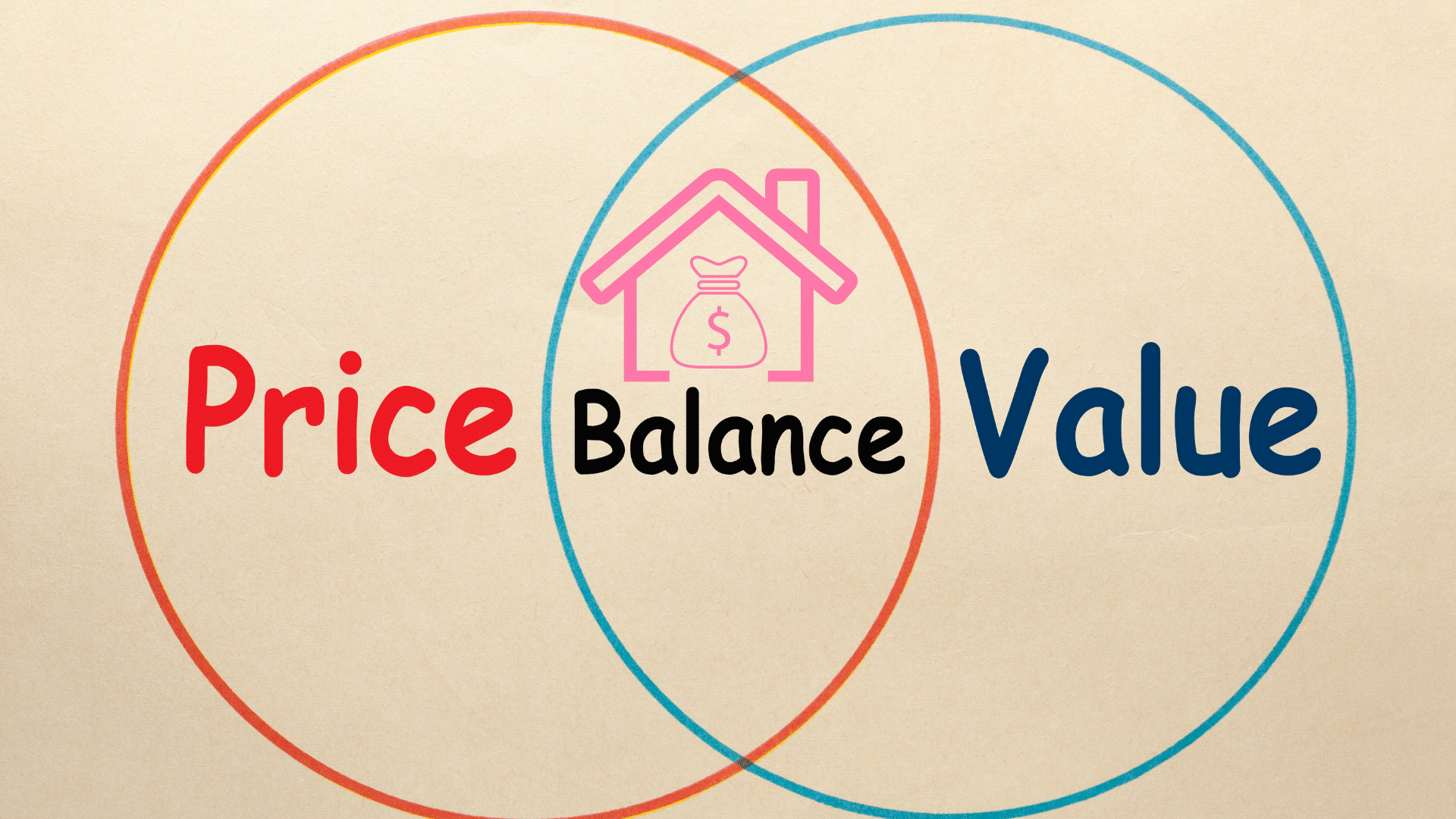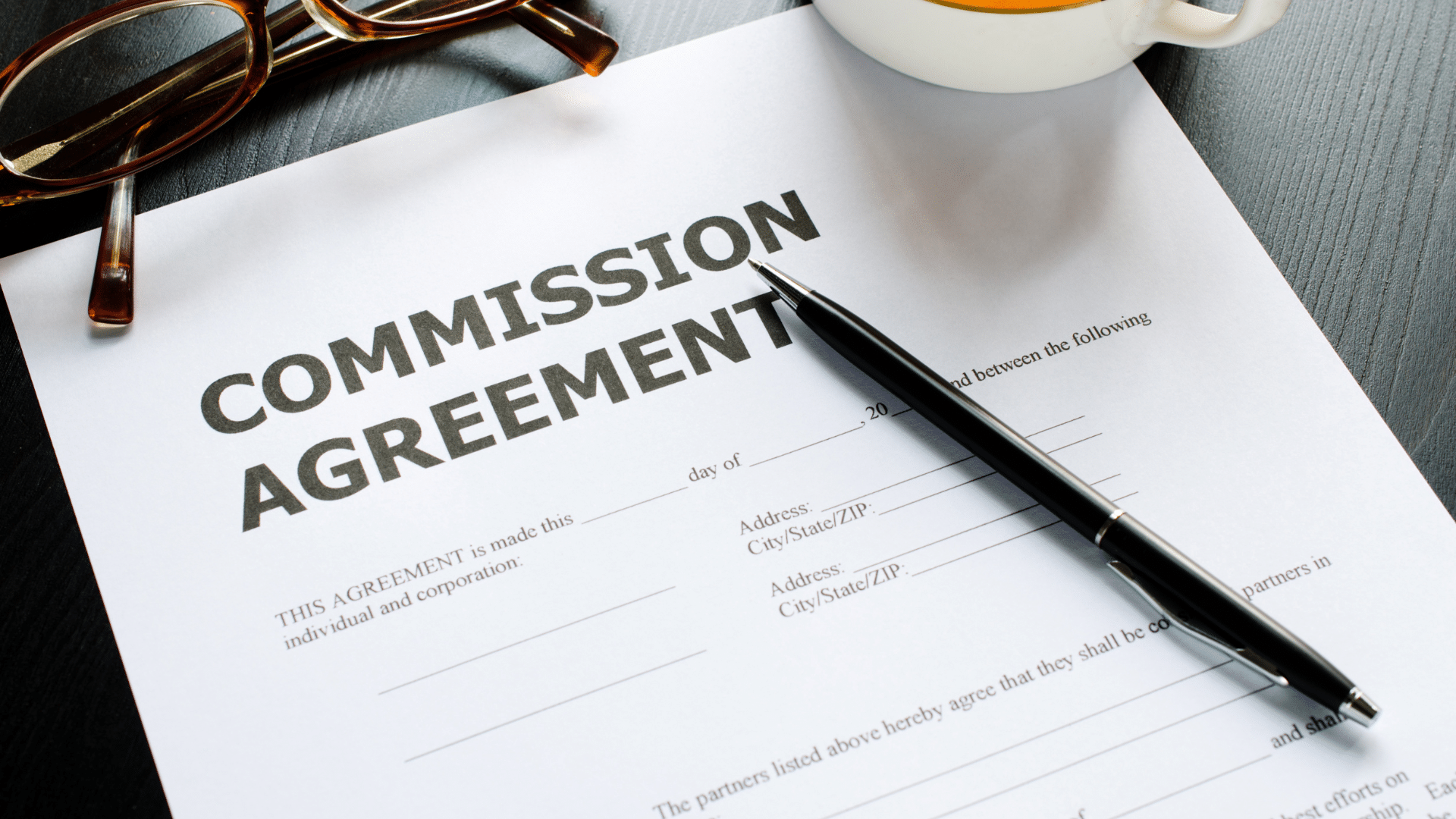Buying or selling a house is like playing an intense game of ’20 Questions’ with a client. Only, instead of guessing an object, you’re decoding the mysteries of the housing market, mortgage rates, and why that weird smell seems to linger in every basement.
From questions about the selling process to house pricing and value, we’ve rounded up the most common questions for real estate agents to help you ace those impromptu interviews.
This article details the top questions real estate agents can expect from clients. We segment several questions depending on an agent’s roles and responsibilities. By the end, you’ll have a solid grasp of the real estate landscape, empowering you to make informed decisions and navigate the market like a pro. So, let’s dive into the top questions every homebuyer and seller should know.
Questions About Experience
The first thing every client wants to know is whether you have the training and experience to help them secure one of the biggest purchases of their lives.
Much like on a first date, your client will want to know who you are, where you have walked professionally, and, most importantly, if you are the right partner for them.
But, instead of the nerve-racking what are you looking for in a relationship, you can expect questions like:
1. How Many Years Do You Have in the Industry?

This question allows them to gauge your level of experience and expertise. Having several years under your belt suggests a deeper understanding of the local market, negotiation strategies, and the home-buying/selling process.
But if you are a new agent with no years to brag about, research all you can on your business territory. Backed by this data, you can still appear knowledgeable on the local market.
2. What Is Your Property Specialty?
Real estate agents have the option of choosing a specialization in different types of properties or neighborhoods. Some agents have made it their mission to not only corner but dominate the commercial real estate space, while others have vowed to spend their careers helping families find their next abode.
Clients ask about your specialty to determine if you are well-versed in the specific area or property type they’re interested in.
3. Are You a Full-time or Part-time Real Estate Agent?

Have you ever been on a blind date, with nerves constantly causing you to shift in your chair, cross and uncross your legs, trying to figure out how to answer the question: What are you passionate about?
This is the professional equivalent. Clients ask this question to determine your dedication to helping them find a home.
Full-time agents can pour more time and attention into their clients, whereas part-time agents may have other commitments that could impact their availability and responsiveness.
Regardless of your dedicated time, always assure clients that your top priority is to serve them to the best of your ability and to their satisfaction.
4. What Is Your Current Client Count?
This question gives clients an idea of your workload and capacity to take on new clients. To a client an agent with too many active clients may struggle to provide the level of attention and service they expect.
Perhaps you can guarantee them that you have a team and that you and your team treat every client like an all-star. Show them that the number of clients on your schedule doesn’t determine the type of service you render.
5. May I see Your License?

Verifying that an agent holds a valid real estate license is crucial. This question certifies clients that they’re working with a legitimate and legally authorized professional who has met the necessary qualifications and requirements.
You can cool any anxiety by presenting your license number or showing them how to check a license.
Questions About the Home Buying/Selling Process
Another set of questions you need to prepare is about the buying and selling process. Clients often want to know what to expect throughout the sales journey. They may phrase their curiosity like this:
1. How Does the Home Buying/Selling Process Work?

A good realtor should be able to provide a comprehensive overview, explaining the key stages and what clients should expect at each step.
Think of it as preparation. When clients buy a home, especially if it is their first purchase, they have a list of concerns and fears to battle. Most may even need hand-holding.
However, taking the time to explain the process to them can give them the confidence boost they need to pursue the home of their dreams.
2. What Are the Steps Involved?
This is an opportunity for you to walk them through the specific steps, from preparing the home for sale or beginning your property search to negotiating offers, conducting inspections, and ultimately closing the deal.
3. How Long Does the Process Typically Take?

Closing in real estate is not set in stone. It can vary depending on factors like market conditions, the property type, and the specific circumstances of the transaction.
For example, a cash purchase is likely to close earlier than a mortgage-backed purchase. In your answer, give clients a realistic estimate based on your local market knowledge.
Don’t try to propose a time you cannot guarantee. I’d even say give them a timeframe instead of an exact time.
A safe answer is always 30 to 60 days.
4. What Fees or Expenses Should I Expect?
Buying or selling a home often involves various fees and expenses, such as closing costs, realtor commissions, and potential repair costs. Homebuyers and sellers must understand these financial obligations upfront to avoid surprises and budget accordingly.
Don’t give a figure-specific answer immediately. Let your client know you will need to look at the house before concluding or calculating the costs.
Questions About the Real Estate Market
When a client approaches you, there is a 50% chance they know where they want to stay and sometimes the type of house they want to live in.
This means they may already have questions regarding a particular market.
1. How Is the Local Property Market Performing?
Gaining insight into the current state of the local real estate market is crucial when buying or selling a home. A knowledgeable agent should be able to provide an overview of market conditions, including factors such as inventory levels, demand, and the average duration of properties on the market.
2. What Are the Current Trends in Home Prices and Sales?

This question allows clients to understand the trajectory of home prices and sales activity in the area. Are prices rising, falling, or remaining stable? How quickly are homes selling in the current market? Are they being sold faster than they are listed? Or are they lingering for extended periods?
An agent with a pulse on market trends can offer valuable perspectives on pricing strategies and timing your transaction effectively.
3. How will Current Interest Rates Impact the House Sale?
Interest rates play a significant role in determining affordability and the overall cost of financing a home purchase. For example, the current interest rate for a 30-year mortgage is 7.29%.
As an experienced agent, you should be able to explain how these rate levels might influence buyer demand, negotiation dynamics, and the overall process of buying or selling a property.
Questions About Pricing and Value
Potential buyers and sellers often have concerns about determining a home’s value, setting a listing price, and making informed decisions about pricing strategy. Here are some common questions and effective responses to help you excel:
1. How Is a Home’s Value Determined?

Understanding how a home’s value is established is crucial for both buyers and sellers. A real estate agent should be able to explain the various factors contributing to a property’s worth, such as recent comparable sales, location, condition, and market trends.
2. What Factors Influence a Home’s Listing Price?
While a home’s value is based on objective factors, the listing price can be influenced by additional considerations. An agent should discuss elements like the seller’s motivation, the current market conditions, and the property’s unique features that may affect the final listing price.
3. How Can I Estimate the Value of My Home?

Knowing the approximate value of a seller’s home is essential for setting realistic expectations and pricing it appropriately. A competent agent can provide a comparative market analysis (CMA) or broker price opinion (BPO), which evaluates recent sales of similar properties in the area to estimate the potential market value.
4. Is it Better to Price High or Low When Selling?
Pricing strategy is a critical component of a successful home sale. An experienced agent should be able to advise on the pros and cons of pricing high versus low, considering factors like the current market conditions, the seller’s timeline, and the potential impact on buyer interest and negotiation leverage.
By addressing these questions, a real estate agent can help buyers and sellers make calculated decisions about pricing and valuation, ultimately leading to a smoother and more successful transaction.
Questions About Negotiations and Offers
Even if your client is making a cash offer, they don’t want to pay more. In fact, I think they are hoping that you have some sort of skill set to help them get a lower price.
Interested in upscaling your negotiation skill? Check out this article.
Here is how they could gauge that:
1. How Do You Make Competitive Offers?

A compelling offer is crucial for buyers to stand out, especially if you are in the bidding war zone. A skilled real estate agent can guide clients through the process, advising on factors such as the initial offer amount, contingencies, and potential negotiation strategies to increase the chances of their offer being accepted.
2. What Are Common Negotiation Points?
Though clients rarely ask this question, it can still be educational. You can help a client understand areas open for negotiations.
Some typical negotiation points include the sale price, closing costs, repair credits, closing dates, and the inclusion or exclusion of specific items in the sale.
3. How Do I Handle Multiple Offers?
For sellers, receiving multiple offers can be exciting and challenging. An agent must provide guidance, evaluating and responding to multiple offers effectively, taking into account factors such as the terms of each offer, the potential for bidding wars, and the overall strength of each buyer’s position.
4. What Is Your Commission Rate?

Before moving forward, understanding the agent’s commission rate and how it is calculated is essential for both buyers and sellers. This holds even more truth with the new settlement terms of the NAR settlement.
A transparent agent is upfront about their commission structure, explaining any variations based on factors such as the sale price or type of property.
Questions About Legal and Financial Considerations
I haven’t met an individual, my cousin being the sole exception, who is enthralled or even a little excited by the notion of trouble with the law. And I can bet a box of Oreos, the feeling is mutual when it comes to money, my cousin included.
That is why another set of questions you should expect is about the legal and financial aspects of real estate transactions.
1. What Legal Documents Are Involved in a Real Estate Transaction?

Buying or selling a home is a legal tale, one that involves various legal documents, and it’s essential to understand their significance. Explain the purpose of these documents, such as purchase agreements, disclosure statements, title documents, and closing documents, to ensure that clients know their rights and obligations.
If there is any legal aspect beyond your scope, partner with an attorney or a mentor to better explain clients’ rights.
2. How Do I Secure Financing or Get Pre-Approved for a Mortgage?
For most buyers, obtaining financing is the only route to realizing their dream. A resourceful agent can guide on the mortgage pre-approval process.
You should also show clients how to shop for lenders, what documentation is required, and how to improve chances of securing favorable loan terms.
3. Are there any Tax Implications When Buying or Selling a Home?

Real estate transactions often have tax consequences that buyers and sellers should be aware of. An experienced agent should be able to offer insights into potential tax implications, such as capital gains taxes, mortgage interest deductions, or other tax considerations specific to a client’s situation.
4. What Is the Role of a Title Company and Escrow?
Understanding the roles of a title company and escrow is essential for a smooth property transaction. Explain how these entities facilitate the transfer of ownership, manage funds, and ensure that all legal requirements are met.
VII. Questions Specifically for the Listing Agent
Above are general questions that apply to various agents. However, below, we explore questions specific to agents based on their roles and responsibilities.
Our first take is listing agents:
1. How Can I Prepare My House for Selling?

Research substantiates that it only takes seven seconds to make an impression, so it’s only fair that every seller wants to present their home in the best possible light to attract potential buyers.
As a listing agent, provide valuable advice on preparing your home for sale, including recommendations for decluttering, staging, making minor repairs or upgrades, and enhancing curb appeal.
2. Do I Need an Inspection?
Most sellers favor a pre-listing inspection to identify and address any potential issues upfront. Advise and guide your clients on the benefits of a pre-listing inspection and the likely costs and timing considerations involved.
3. Is it Currently a Buyer or Seller’s Market?
Understanding the state of the local real estate market is crucial when pricing and marketing a home. An experienced listing agent should have a firm grasp on whether the market favors buyers or sellers.
This can influence pricing, negotiation, and marketing strategies. Your answer to this question will give your client an understanding of what to expect regarding offers.
4. Do You Have Experience Working within my Area?

Local market expertise is invaluable to you and the seller. How you answer this question can ease concerns about your ability to represent the home expertly.
Showcase your insight into pricing trends, buyer preferences, and potential marketing tactics tailored to their location.
5. How Long Do Your Listings Spend on the Market?
The time a property spends on the market can be an essential factor in determining the effectiveness of an agent’s marketing efforts.
Your answer to this question should highlight techniques you use to move houses off the market.
Questions Specifically for the Buyer’s Agent
The final set is dedicated to the buyer’s agent. Here are some questions you can expect from a buyer:
1. How Many Houses Should I See Before Settling for One?

Homebuyers must find the right property that meets their needs and preferences. But in search of that perfect home, most buyers find themselves in a maze of open houses.
An experienced buyer’s agent should provide guidance on the typical number of homes buyers view before making a decision, taking into account factors such as your specific criteria, the current market conditions, and their knowledge of available inventory.
However, encourage your clients to narrow down their non-compromisable aspects before the search begins.
2. How Does Earnest Money Work?
Earnest money is a deposit the buyer makes to demonstrate their dedication and genuine interest in acquiring a property. If you are working with a new homebuyer, explain to them the purpose of earnest money, the typical amount required, and how it is handled throughout the transaction process.
3. How Will You Represent My Offer?

When submitting an offer, clients want an agent who will effectively represent their interests. Homebuyers may inquire about your negotiation techniques, approach to communicating with the seller’s agent, and how you plan to advocate for their desired terms and conditions.
4. Will You Accompany Me to the Walkthrough?
The final walkthrough is an essential step before closing on a home. As the move draws closer, quite frankly, no lid is big enough to hold in the excitement.
But even amid the joy, clients may have lingering questions and fears. Is the house in the agreed-upon condition? Are those south-facing French windows repaired?
Your client will need someone there to help them address any potential concerns or issues that may arise and, most importantly, to help them celebrate their new milestone.
Unlocking the Secrets of Real Estate
By addressing these questions, your clients gain valuable insights into your expertise, marketing approach, and ability to represent their interests. You also get the free opportunity to increase your authority as a knowledgeable estate agent who is not insecure about educating clients.
Like I said, it’s a relationship.
Next Steps:
Looking for ways to prepare for client meetings? Try these steps:
1. Be Proactive: Proactively prepare for these questions by gathering relevant market and legal information.
2. Communicate: Prioritize clear and transparent communication, taking the time to guide clients throughout the real estate journey.
3. Employ Technology: Leverage technology and marketing strategies to showcase properties effectively, attract potential buyers and sellers, and facilitate seamless transactions.
Have you ever been a victim of rapid-fire questions at the hands of a client? Share your thoughts and experiences in the comments section below.
But here’s the thing: all this information is utterly useless unless you have your real estate license. Take our real estate practice exam to help you get a step closer to your license.











